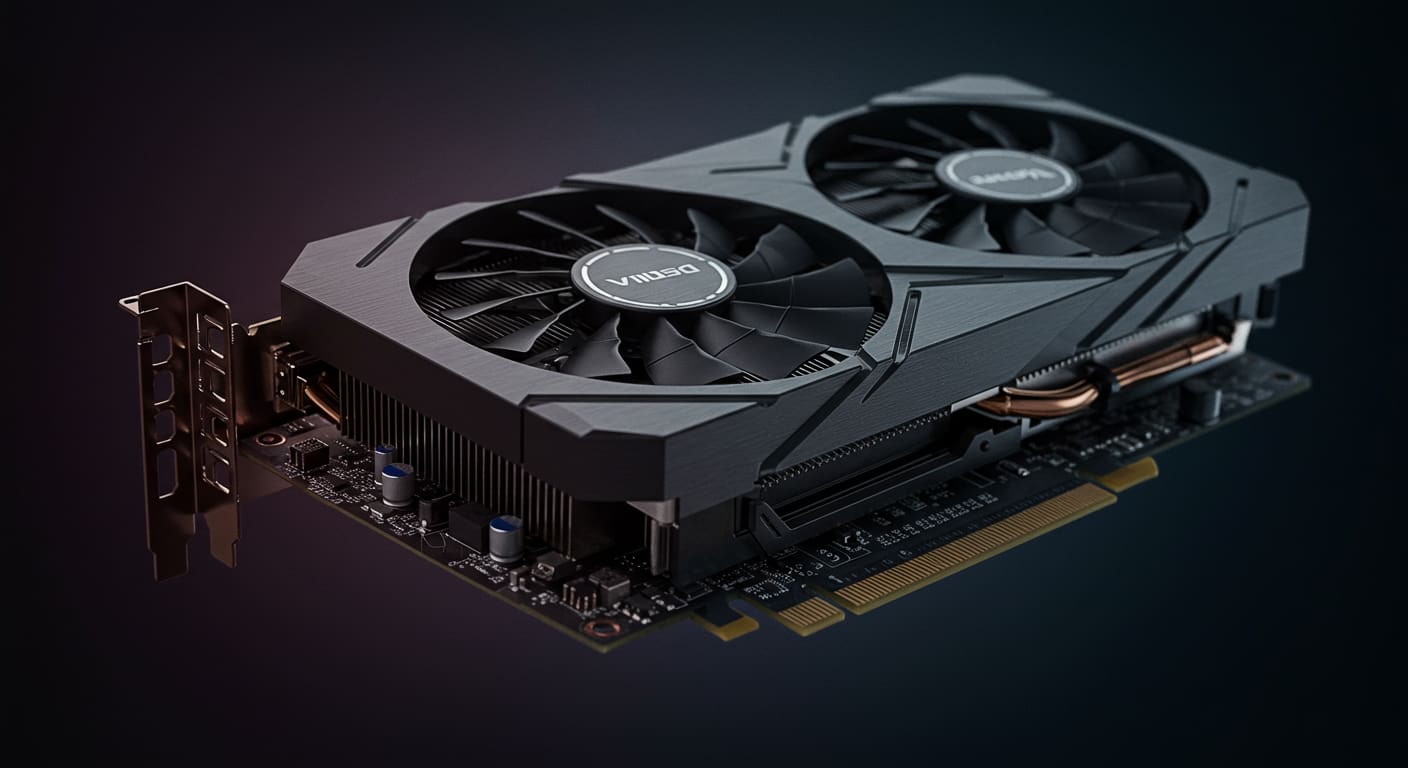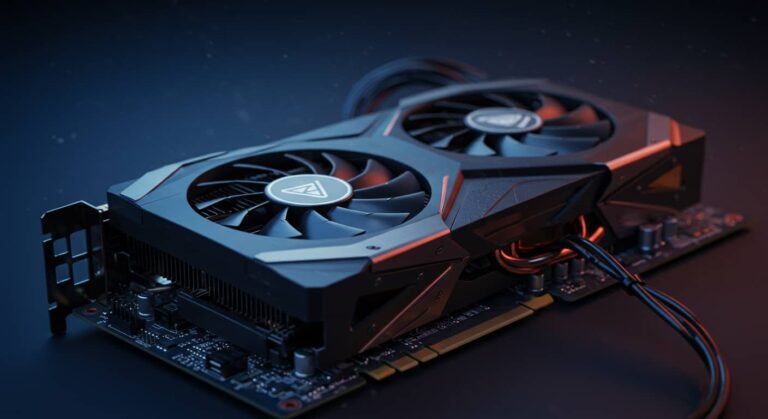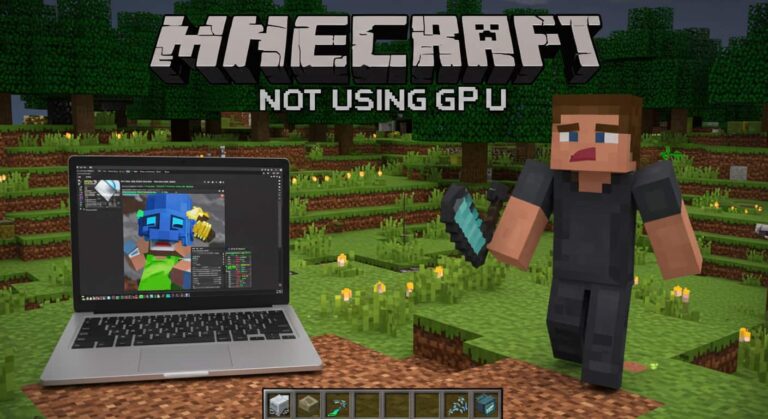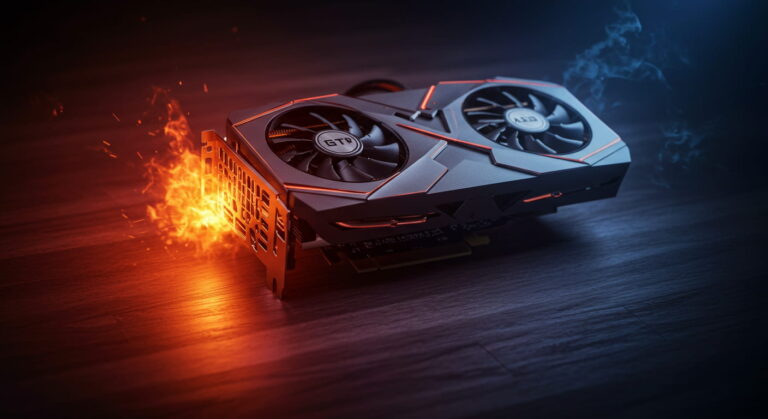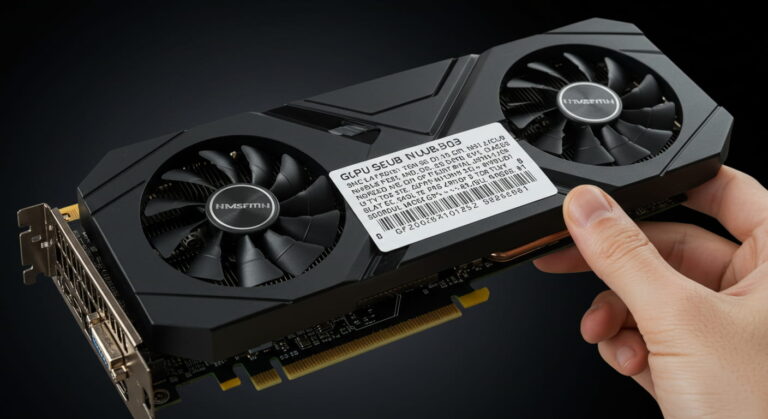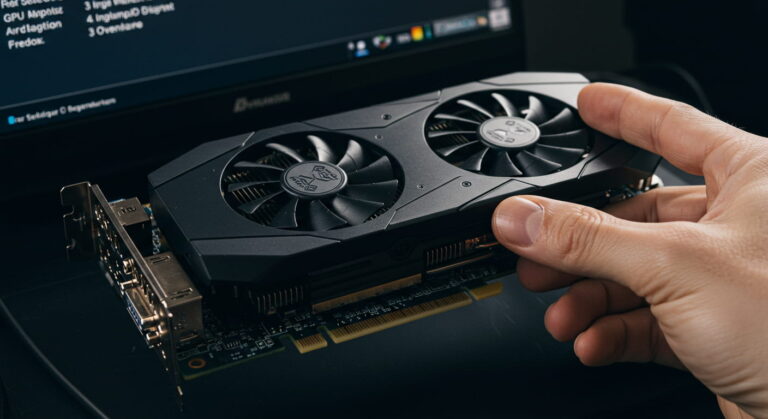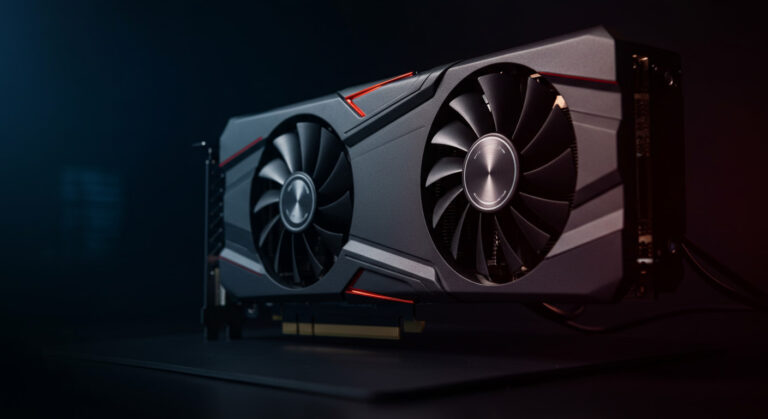GPU Clock Speed for Gaming – Guide to Performance & Settings!
When it comes to PC gaming, many players focus on graphics cards, processors, and RAM. However, one of the most important yet often misunderstood aspects of graphics card performance is GPU clock speed for gaming. Whether you’re aiming for higher frame rates, smoother gameplay, or just a better overall gaming experience, understanding how GPU clock speed works can help you make smarter choices.
In this guide, we’ll break down what GPU clock speed means, why it matters for gaming, recommended speeds for different resolutions, and how to optimize it for the best balance between performance and stability.
Understanding GPU Clock Speed
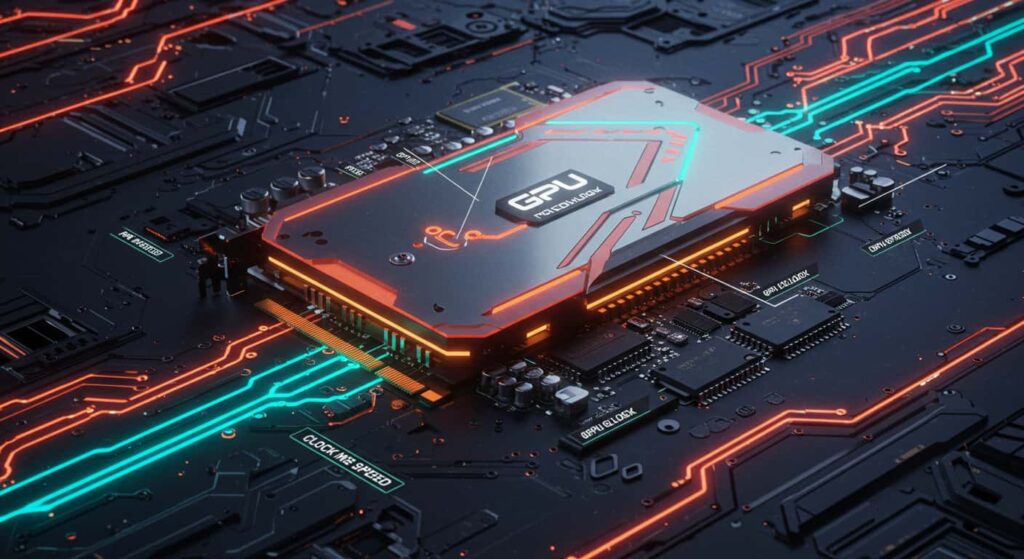
What is GPU clock speed and why is it important for gaming?
GPU clock speed refers to how fast the graphics processing unit (GPU) can process data and render graphics. It is measured in megahertz (MHz) or gigahertz (GHz). A higher clock speed generally means the GPU can execute more instructions per second, which often translates to better gaming performance.
For gaming, clock speed matters because it affects how quickly your graphics card can handle tasks such as rendering textures, calculating physics, and processing game environments. While VRAM and cores also play a role, the GPU clock speed is the heartbeat that keeps everything running smoothly.
GPU Memory Clock Speed vs GPU Core Clock Speed
There are two main types of GPU clock speeds:
- Core Clock Speed – Determines how fast the GPU’s cores perform calculations. This directly affects frame rates and overall rendering performance.
- Memory Clock Speed – Refers to the speed of VRAM (video memory). This impacts how quickly textures and data are transferred between the GPU and VRAM.
Both are important, but when we talk about GPU clock speed for gaming, the core clock has a more direct impact on FPS, while memory clock affects data handling and resolution.
Is memory clock speed or GPU clock speed more important?
In gaming, core clock speed usually has a greater effect on performance than memory clock speed. However, the balance between the two is crucial. If you have a high core clock but weak memory speed, the GPU may bottleneck. Similarly, fast memory without a strong core clock won’t make much difference.
For modern gaming, aim for a balanced GPU where both core and memory clock speeds complement each other.
Also read: What is a Good GPU Clock Speed MHz?
GPU Clock Speed and Gaming Performance
Does GPU clock speed matter for gaming?
Yes, GPU clock speed does matter for gaming. A higher clock speed can lead to better performance, particularly in graphics-heavy games. However, it’s not the only factor—architecture, VRAM size, and cooling solutions also influence results.
For example, two GPUs with the same architecture but different clock speeds will show a noticeable difference in frames per second (FPS) when gaming.
GPU clock speed vs FPS: Is there a real difference in gaming?
FPS (frames per second) is the most obvious indicator of gaming performance. Since GPU clock speed controls how fast the GPU processes instructions, increasing it often boosts FPS. However, the difference depends on the game and resolution.
- In less demanding games, a higher clock speed may not show a huge difference because the GPU is already performing above requirements.
- In AAA titles or high-resolution gaming, clock speed improvements can significantly increase FPS.
Can higher GPU clock speed guarantee better gaming performance?
Not always. While higher GPU clock speed typically improves performance, it comes with trade-offs:
- More heat generation
- Higher power consumption
- Potential instability if pushed too far
So while clock speed boosts can help, they must be supported by good cooling and efficient architecture.
Does GPU clock speed affect game loading times?
Game loading times are mostly influenced by storage (SSD or HDD) rather than GPU clock speed. However, once you’re inside the game, clock speed directly affects how smoothly the graphics are rendered.
Is GPU clock speed more important than VRAM for gaming?
This depends on the type of games you play:
- For graphically demanding AAA games, VRAM is very important because textures and assets take up space.
- For competitive eSports titles, GPU clock speed can be more important since FPS and responsiveness matter more than large texture handling.
The best setup is having both adequate VRAM and a good GPU clock speed for balanced gaming.
Recommended GPU Clock Speeds for Different Setups
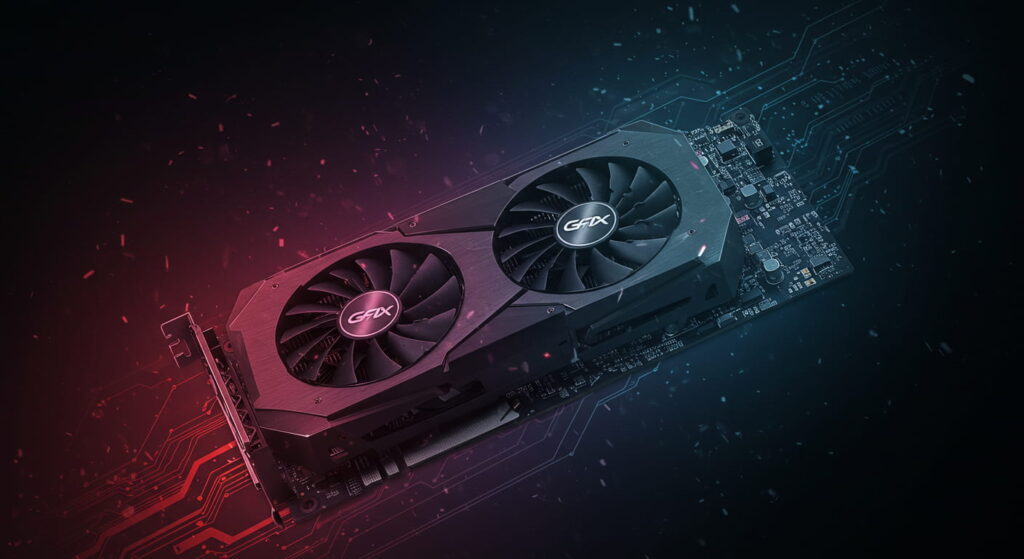
What should GPU clock speed be for gaming?
There isn’t a one-size-fits-all answer, but here are general guidelines:
- Entry-level gaming: 1200–1500 MHz
- Mid-range gaming: 1500–1800 MHz
- High-end gaming: 1800–2200+ MHz
These numbers vary depending on GPU model and architecture, but they serve as a good reference point.
Ideal GPU clock speed range for modern PC games
For most modern PC games in 2025, a GPU clock speed of 1700–2100 MHz is considered ideal. This range balances performance with stability, especially for 1080p and 1440p gaming.
Best GPU clock speeds for 1080p, 1440p, and 4K gaming
- 1080p Gaming: 1500–1800 MHz is usually sufficient.
- 1440p Gaming: 1700–2000 MHz delivers smooth performance.
- 4K Gaming: 2000+ MHz is recommended, especially for high-refresh-rate monitors.
Do AAA games require higher GPU clock speed?
Yes, AAA games with complex environments and high-resolution textures demand more GPU power. To run them smoothly, a higher GPU clock speed—alongside enough VRAM—is essential.
Also read: How Much GPU Usage Is Normal?
Optimizing and Adjusting GPU Clock Speeds
How overclocking GPU clock speed impacts gaming experience
Overclocking means manually increasing the GPU clock speed beyond factory settings. Benefits include:
- Higher FPS
- Better performance in demanding games
- Improved responsiveness
However, risks include overheating, crashes, and reduced GPU lifespan if not managed properly.
Safe GPU clock speeds for long gaming sessions
For stability, it’s better to keep GPU clock speed within a safe range recommended by the manufacturer. Pushing too high may result in system crashes or thermal throttling. A good balance is to increase by 5–10% over stock speeds if your cooling system can handle it.
Does lowering GPU clock speed help with temperature and stability in gaming?
Yes, lowering GPU clock speed (called underclocking) can reduce heat and power consumption. This is useful for laptops or small-form PCs where cooling is limited. The trade-off is lower FPS, but stability improves for extended gaming sessions.
GPU clock speed vs power consumption in gaming PCs
Higher clock speeds consume more power, leading to:
- Increased electricity usage
- More heat generation
- Louder fan noise
Balancing clock speed with power limits is key for efficient gaming builds.
How to optimize GPU clock speed for better gaming performance
- Use software like MSI Afterburner or ASUS GPU Tweak
- Monitor GPU temperature and performance
- Increase in small steps, testing stability after each change
- Combine with good airflow and cooling solutions
Real-World Data and Comparisons
GPUs by GPU clock speed (2025)
In 2025, top GPUs show impressive clock speeds:
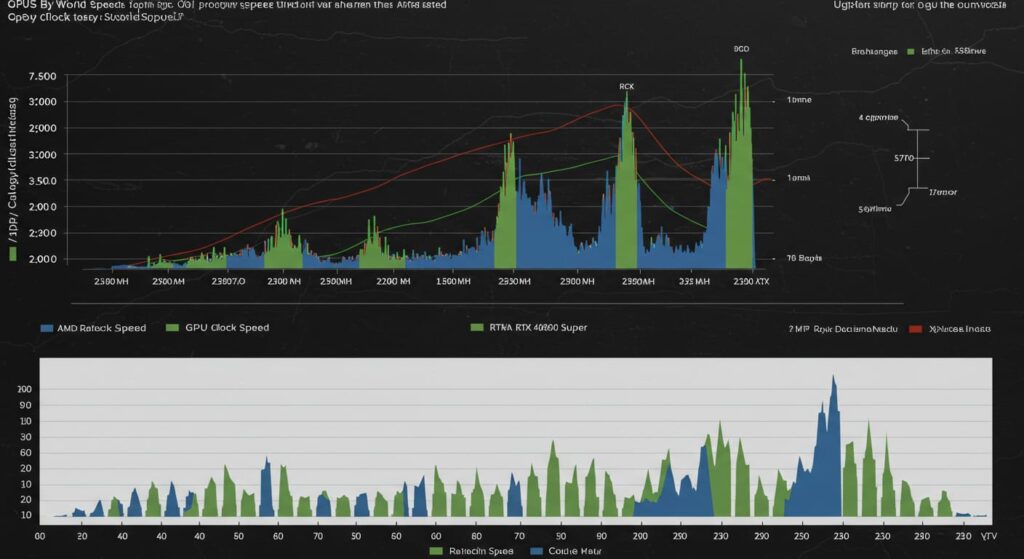
- NVIDIA RTX 4090: 2200–2500 MHz
- NVIDIA RTX 4080 Super: 2100–2300 MHz
- AMD Radeon RX 7900 XTX: 2300–2500 MHz
These benchmarks highlight how far GPU clock speeds have advanced in recent years.
GPU clock speed benchmarks in popular games (2025)
- Cyberpunk 2077 (4K Ultra): 2000+ MHz needed for smooth 60+ FPS
- Call of Duty Warzone: 1700–1900 MHz is enough for 1440p high settings
- Fortnite (1080p competitive): Even 1500 MHz delivers excellent FPS
These benchmarks show how different games scale with GPU clock speeds.
Thoughts on GPU Clock Speed for Gaming
Summary of how GPU clock speed impacts gaming
- Directly improves FPS and rendering performance
- Has little effect on loading times
- Must be balanced with VRAM and architecture
- Can be optimized safely for better results
Also read: GPU Not Showing Up in Device Manager? Causes and Fixes!
Balanced advice for casual gamers vs pro gamers
- Casual gamers – Stick to factory GPU clock speeds. Modern GPUs are already optimized for stable performance.
- Pro gamers/enthusiasts – Consider overclocking for extra FPS, but ensure proper cooling and power supply.
At the end of the day, GPU clock speed for gaming is an important factor, but it should be balanced with VRAM, resolution, and cooling for the best experience.
FAQs on GPU Clock Speed for Gaming
What is a good GPU clock speed for gaming?
A good GPU clock speed for gaming is usually between 1700–2100 MHz for modern titles. This range balances performance, temperature, and stability for most players.
Does GPU clock speed affect FPS in gaming?
Yes, GPU clock speed directly affects FPS because it determines how fast the GPU processes graphics. Higher speeds usually mean smoother gameplay, especially at higher resolutions.
Is higher GPU clock speed always better for gaming?
Not always. While higher speeds improve performance, they also increase heat and power usage. The best results come from balancing clock speed with cooling and stability.
How does GPU clock speed impact 1080p vs 4K gaming?
For 1080p gaming, moderate clock speeds around 1500–1800 MHz are enough. But for 4K gaming, GPUs often need 2000+ MHz to handle detailed textures and maintain smooth frame rates.
Can I increase GPU clock speed for better gaming performance?
Yes, you can overclock your GPU to boost clock speed, which can improve gaming performance. However, it requires good cooling and stability testing to avoid crashes or overheating.
What happens if GPU clock speed is too low for gaming?
If your GPU clock speed is too low, you may face lag, low FPS, and stuttering in demanding games. Some lightweight or older titles may still run fine, but performance in modern games will suffer.
Does GPU clock speed matter more than VRAM for gaming?
Both are important. GPU clock speed affects FPS, while VRAM impacts texture handling and resolution. For smooth gaming, you need a balance of both.
How to check GPU clock speed for gaming?
You can check GPU clock speed using tools like MSI Afterburner, GPU-Z, or Task Manager in Windows. These show live GPU performance, including core and memory clock speeds.
What is the difference between base clock and boost clock in gaming GPUs?
The base clock is the minimum guaranteed GPU speed, while the boost clock is the higher frequency a GPU can reach under load. Gaming usually benefits from boost clocks for extra FPS.
Is GPU clock speed the most important factor for gaming?
No, GPU clock speed is important but not the only factor. Architecture, core count, VRAM, cooling, and drivers also play a big role in overall gaming performance.
Conclusion:
Understanding GPU clock speed for gaming is essential for anyone looking to get the best performance out of their graphics card. While higher clock speeds can improve frame rates and deliver smoother gameplay, they’re not the only factor that matters. VRAM, GPU architecture, cooling, and power efficiency all work together with clock speed to shape your gaming experience.
Related post:
